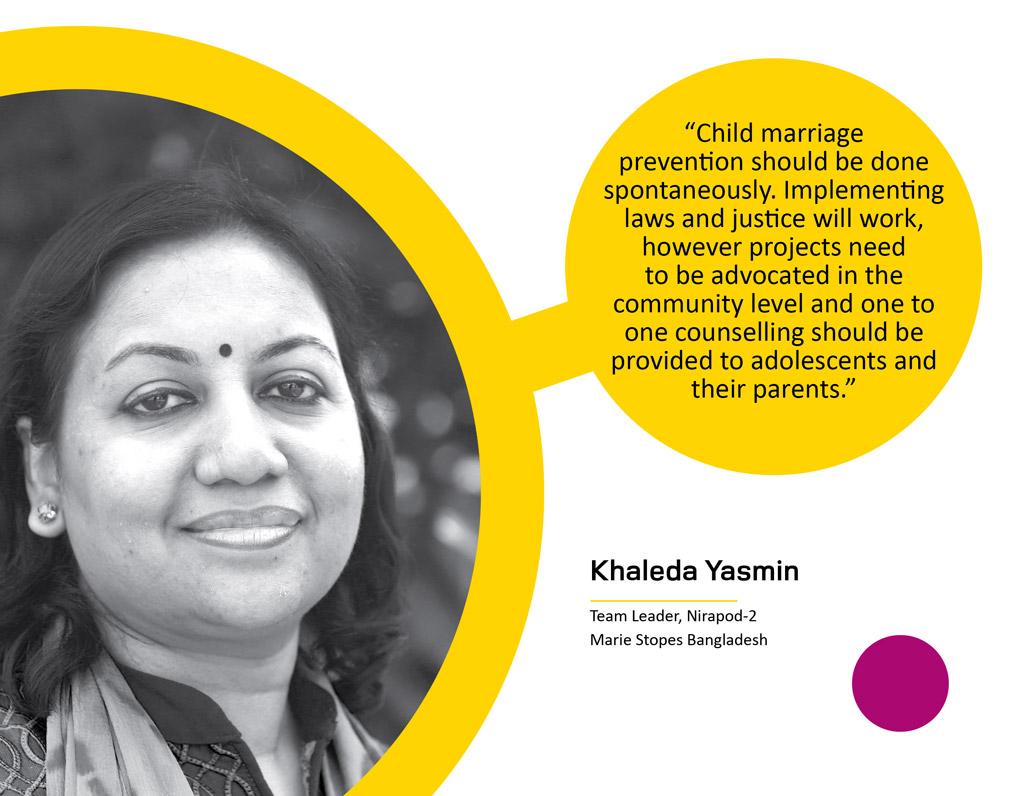Highlights of Initiatives of Child Marriage in Bangladesh Part 5
Khaleda Yasmin
Team Leader, Nirapod-2
Marie Stopes Bangladesh
`Nirapod-2: Empowering Women on SRHR and Choice of Safe MR and FP’ project started in December 2015 with support from the Embassy of the Kingdom of the Netherlands (EKN). The project directly communicates and helps almost 1.6 million (1,647,000) people at the local level. It is currently being implemented in selected 40 upazilas of six coastal districts in Barguna, Patuakhali, Noakhali, Lakshmipur, Khulna and Narail. The main objective of the project is: `Empower women, men, and adolescent girls in rural Bangladesh and in garment factories to exercise their sexual and reproductive health rights and ultimately improving maternal health outcomes’.
The project formed different groups to communicate with local leaders, local Govt. GoB officials, NGOs and community people. The volunteers were sensitized on gender and SRHR issues and were trained to lead whenever needed. After training, the volunteers tried to orient and disseminate messages to people in their communities. The life-skill training allowed the volunteers to empower adolescent girls, boys, women, men and educate their parents about the negative impacts of child marriage. In the project areas, 40 adolescent groups are working with 800 members in 40 upazilas. Under the project, BAPSA Noakhali and Chasir Union Parishad jointly worked in vigorous campaigns to prevent child marriages in those areas. Soniamuri Upazila Administration of Noakhali district declared `Chasir Hat Union Parishad’ as early child marriage free.
In one incident, a male community support group member of Nirapod-2 successfully prevented the marriage of a 14-year-old girl to a 25-year-old man by tactfully pretending to call the police on the wedding day. Afraid, the father of the groom went back. This stopped the marriage, and the girl’s parents vowed that they will not let her marry before her legal age.
As Bangladesh is a patriarchal society, whenever a major decision is taken, male involvement is inevitable. 800 Male Community Support Group (MCSG) members are given sessions on how to practice safe MR/MRM and enlighten them on different issues like the effects of child marriages and VAW (Violence Against Women). The project understands that supportive role from masculine counterpart is crucial for the success of the project activities.



